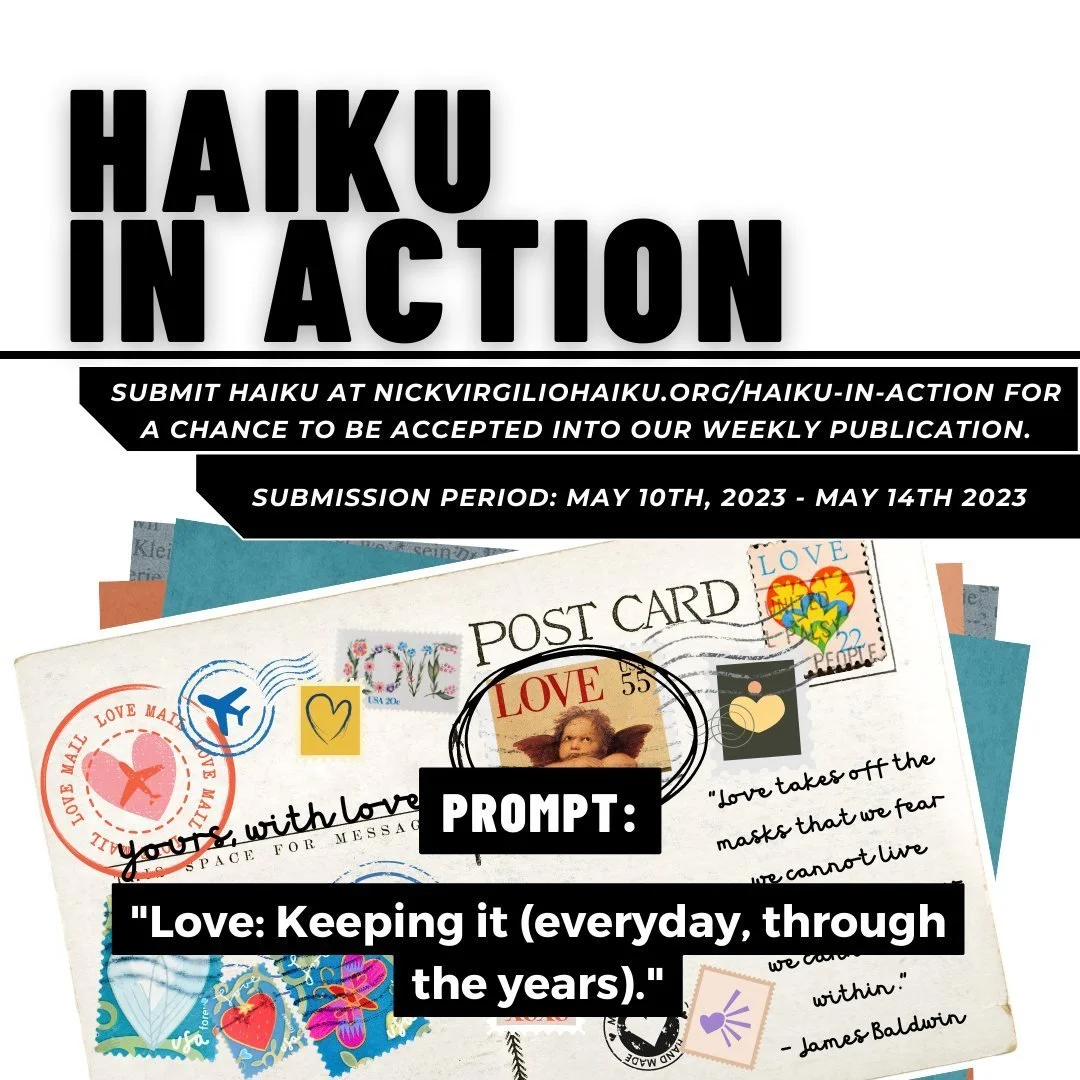






Virgilio Blog
News & Poetry


















Bios
ERIN CASTALDI
Erin Castaldi has been writing haiku for years and has been translated into numerous languages. She has had three short form chapbooks published and has appeared in numerous journals and anthologies. She was the first place winner in Encircle Publication’s 12th Annual Chapbook Contest 2022. In her current position as Poet Laureate of the city of Somers Point, New Jersey, she relishes the opportunity to share haiku with her community. In a former life, she was employed as a surveillance officer in a large casino and as an Emergency Medical Technician (EMT). She and her husband currently operate a small business thriving nationally.
SCOTT MASON
Scott Mason is the author of The Wonder Code: Discover the Way of Haiku and See the World with New Eyes, recipient of the Kirkus Star from Kirkus Reviews and the top book award from both The Haiku Foundation and the Haiku Society of America. His individual haiku have placed first in more than two dozen international competitions.
Commentaries (listed alphabetically by first word)
farmer’s wagon
dust settles
til dawn
This haiku brings to mind the dusty lot of a rural farm road. The evenings, untouched and quiet. The dust that swirls and cakes the shoes of visitors, animals and wagon wheels—by day ever swirling. At sundown, the work settles until dawn, when it all begins again. An active life on the land. Yet, the dawn always comes, and for the farmer, another day of work bringing produce to market. A genuine and hearty haiku. (EC)
held in winter branches
a fading moon’s
broken light
This haiku is a stunning example of the serene loneliness embodied in classic Japanese poetry. The solitude of silence or the fractured beauty of imperfect elements of nature. What a joy to find such elevated juxtaposition between the first line and the other two. The best poems are those that are fresh now and in the future. Bravo! (EC)
kingfisher chatter
in the wind
her touseled hair
The belted kingfisher—most common of all kingfisher species—has a ratchet-like call: “chatter” is an apt characterization. Likewise, its spiky crest gives every sense of “touseled hair,” the perfect visual analog to that chatter. Alternatively, or additionally, it could be the observer’s hair (belonging to the “her” here) that’s touseled. Either way, the wind of the middle line serves admirable double duty: as a pivot, relating separately to the subject in each of the other two lines; and as an active agent, both delivering the bird’s chatter and roughing up its (and/or its observer’s) “hair.” An engaging, sensory treat. (SM)
night without clouds
she holds the moonlight
gently
This lovely poem is infused not just with moonlight but with yugen, the Japanese aesthetic term which translates, roughly, to a sense of mystery. Does the “she” in question here hold some of this ethereal substance in her cupped hands? Or does she do so with her entire being and body, as Bashō’s immortal frog used in order to sound the splash heard round the world? We’re left to wonder in wonderment. (SM)
Rosh Hashanah
her apple cake recipe
scribbled in German
Rosh Hashanah is New Year in the Jewish faith and, as such, a time of new beginnings and looking forward. Festive meals may include “symbolic foods, such as apples dipped in honey, hoping to evoke a sweet new year” (Wikipedia). But the striking third line of this poem instantly takes us back to “the Old Country,” reminding us that Rosh Hashanah is also a tradition endowed by a rich cultural past lived by loved ones now departed. A beautiful and poignant haiku. (SM)
wind- brushed pond
light breaks through
dragonfly wings
This poem embodies the spirit of haiku. I am reminded of a spring day out on the water. I wade through the reeds at the edge of the Great Egg River, where my home is. A strong breeze breaks the surface and makes ripples, when dragonflies appear. Perhaps day’s first light? This kind of moment soothes the spirit. A lovely poem and a great example of what a haiku can be. (EC)





















Bryan Rickert, Blithe Spirit 31.3
Susan Burch, Cold Moon Journal June 2021
Marilyn Ashbaugh
Kathleen O’Toole, Modern Haiku #43.3 2012